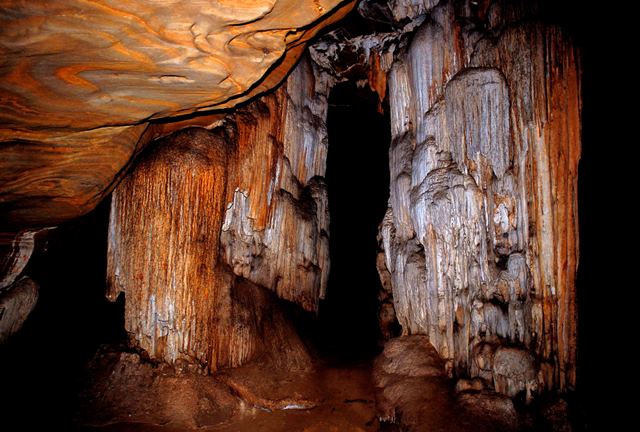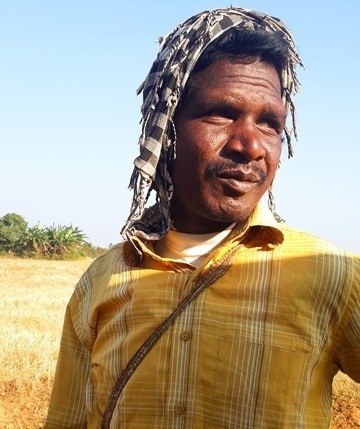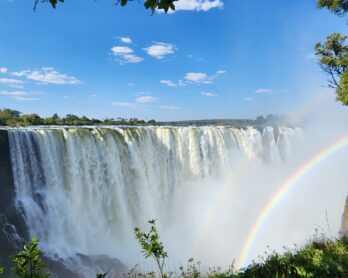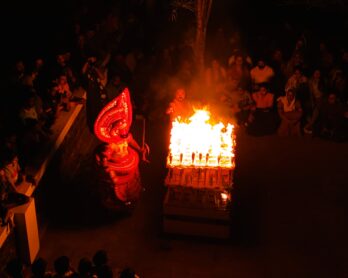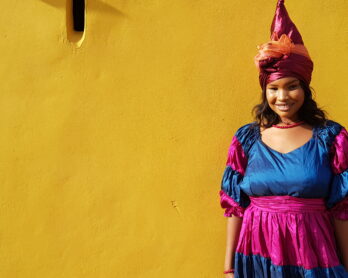In the beginning there was the Bastar Palace. Jagdalpur town was originally the living quarters of the palace personnel who settled in the imperial whereabouts. Sure enough it soon began straggling in all directions and today it goes a very long way in all directions. When you exit the city towards Sukma – deeper south – for the Kanger Valley it is evident that it is still lugubriously lugging along. Take the Gidam Road (NH 16) through which Jagdalpur goes on in fits and spurts till Kesulur, 12 km away.
At Kachowri Gali Chowk the bereaved family halted abruptly and looked around flummoxed: where did their dear departed go? Narrow lanes threaded by paan and tuck shops met their gaze. Cows pootled along like shuffling gum-chewing teenagers. Widows clad in white cotton saris with faded neelam-blue borders sat dignified at the doorsteps of dharamshalas, hands clasped in prayer – audible only when they took a break to ask for alms. There were reiki and yoga centres claiming reviews on TripAdvisor and confectioners claiming references in Lonely Planet. Flower sellers sat
Traditions with fabled moorings are still sure-footed in Varanasi. Kushti, Indian wrestling, goes back 5000 years in this old old living city. The origins of kushti akharas* where training in kushti is given has been attributed to Parashuram who plays a stellar role in the Indian epics Ramayana and Mahabharata as mentors to exemplary warriors Bhishma and Drona. Today despite grappling with paucity of patronage and dwindling public interest these akharas are brimming: mud-splayed muscles heave nimbly, entangled limbs before pummel, submission holds choke out grunts, thigh slaps sting the
Like any legendary lot the Khalasis too determinedly deplores and disses any attempt that plebeianises a hard earned reputation. Following the Perumom Tragedy of 1988 when modern cranes and other power tools failed it was the Khalasis who lifted the sunken train compartments out from the depths of the Ashtamudi Lake in Kollam employing just their age-old pulleys, hawsers and rollers. EK Nayanar the then chief minister requested them to lend a hand. Today ‘Service and Khalasi’ is a frequent signboard in and around Kozhikode (Calicut); exiting the city for
The word ‘archaeology’ is Greek in origin and has nothing to do with monuments or heritage but simply means the ‘pursuit of ancient knowledge.’ While few of us pursue ancient knowledge ardently – or any knowledge for that matter – while on holiday, there is a certain joy we experience while visiting heritage sites – treasure troves of prehistoric civilisations, acmes of ancient creativity, epitomes of thought and design from an era gone by. More so when they are not overrun by tourists or hidden beneath unseemly structures erected in
Some tough calls are easy to make because we were just waiting, having known all along. I could have stuck to the brief and brought out my book on time. Or I could talk about tribal dislocation, warn about traffic conditions, mull over Maoists, their lives and death and burial traditions, ponder over poaching that went on unhindered in the ‘protected’ biospheres – inviting the sponsor’s wrath and editorial anguish and thereby also bring upon myself the inevitable and frustrating publication delay. Though there is not much to show for it
“We the people…” Das shouted over the staccato din of his rear engine auto rickshaw “are full support of the port.” Das and I were on our way to Mulloor, few kilometres from Vizhinjam, a flashpoint in the elaborate and controversial land acquisition exercise for the much touted Vizhinjam Port developed jointly by the state and central governments and infrastructure major Adani Group. “Only the priests and politicians have a problem.” At the Kuriathy Beach in Mulloor resorts stood in rubbled desolation; while some acquiesced without fight, many waged court
On the day of the museum’s inauguration in January this year one of the invitees, a prominent local politician, said to Sunny’s wife Josia “This is sheer craziness.” It was, one can imagine, only in the course of faithful disbursal of his duties as a democratically elected representative of the people – the vox populi. Because that was exactly what most of those who had gathered there thought: Sunny must be off his rocker to sink his entire retirement funds into a no-return venture like a museum. Many months later,
Seldom do we have a say in the situations we find ourselves in. But where we do is whether we come out of them. And how: Shaking like a dry leaf in a harmattan but unscathed, barely scraping through and lucky to be alive. Or what we make of them: Wiser, more patient, better streetsmarts, a newfound appreciation for life. Even as wellsprings of opinion on everything under the sun or a screaming expert on national television. Every recount accords a reinvention: Apoplectic juddering and sweaty brows of a private
Land proprietorship in Kerala is classified under three broad no-need-to-quantify heads: muttam (yard), parambu (farm) and estate (estate). The lack of need to quantify arises from an everyday fact – nobody gives out actual figures and everyone assigns everyone else acreage inversely proportional to the degree of familiarity. And everyone is happy: while the meagre holders bask under the enhanced share – of property and thereby social standing, it helps the muthalali, the big fish, hide from taxmen, credit-seeking relatives and of late, extortionists and kidnappers. The recently announced rubber


